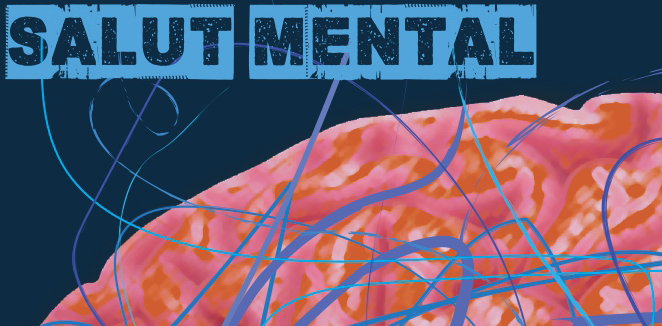Addressing disruptive behaviors from an inclusive perspective
DOI:
https://doi.org/10.32093/ambits.vi55.5027Keywords:
Behaviour management, Inclusive education, Proactive strategies, Support networkAbstract
The management of disruptive behaviours is one of the great concerns within schools. This management often ends up being reactive, rather than proactive, focused on one student and delegated to specific specialists, thus far from being truly inclusive. The purpose of this article is to share experiences of behaviour management implemented in schools with a markedly inclusive character. Through the experiences of a group of professionals from inclusive schools, the approach and some of the strategies that they highlight as key to handle situations with disruptive behaviours in a more inclusive way are presented. They explain the importance of implementing active methodologies, an efficient organization of professionals, the agreement of coherent norms with the entire educational community (including family and students) and ensuring an affective bond with students.
References
Booth, T., & Ainscow, M. (2002). The index for inclusion. Bristol: Centre for Studies on Inclusive Education.
Clunies-Ross, P., Little, E., & Kienhuis, M. (2008). Self‐reported and actual use of proactive and reactive classroom management strategies and the irrelation ship with teachers tress and student behaviour. Educational Psychology: An International Journal of Experimental Educational Psychology, 28(6), 693–710. https://doi.org/10.1080/01443410802206700
Dicke, T., Elling, J., Schmeck, A., & Leutner, D. (2015). Reducing reality shock : The effects of classroom management skills training on beginning teachers. Teaching and Teacher Education, 48, 1–12. https://doi.org/10.1016/j.tate.2015.01.013
Durlak, J. A., Weissberg, R. P., &Pachan, M. (2010). A Meta-Analysis of After-School Programs That Seek to Promote Personal and Social Skills in Children and Adolescents. American Journal of Community Psychology, 45(3–4), 294–309. https://doi.org/10.1007/s10464-010-9300-6
European Agency for Special Needs. (2019). Country Information. https://www.europeanagency.org/country-information
Hepburn, L., &Beamish, W. (2019). Towards implementation of evidence-based practices for classroom management in Australia: A review of research. Australian Journal of Teacher Education, 44(2). https://doi.org/10.14221/ajte.2018v44n2.6
Humphrey, N., Barlow, A., Wigelsworth, M., Lendrum, A., Pert, K., Joyce, C., Turner, A. (2016). A cluster randomized controlled trial of the Promoting Alternative Thinking Strategies (PATHS) curriculum. Journal of School Psychology, 58, 73–89. https://doi.org/10.1016/j.jsp.2016.07.002
Korpershoek, H., Harms, T., de Boer, H., van Kuijk, M., & Doolaard, S. (2016). A Meta-Analysis of the Effects of Classroom Management Strategies and Classroom Management Programs on Students’ Academic, Behavioral, Emotional, and Motivational Outcomes. Review of Educational Research, 86(3), 643–680. https://doi.org/10.3102/0034654315626799
Lavelle, M., Stewart, D., James, K., Richardson, M., Renwick, L., Brennan, G., &Bowers, L. (2016). Predictors of effective de-escalation in acute inpatient psychiatric settings. Journal of Clinical Nursing, 25(15–16), 2180–2188. https://doi.org/10.1111/jocn.13239
OECD (2014). TAILS 2013 Results: An International Perspective on Teaching and Learning, TAILS. OECD Publishing. http://dx.doi.org/10.1787/9789264196261-en
OECD (2019), TALIS 2018 Results (Volume I): Teachers and School Leaders as Lifelong Learners, TALIS, OECD Publishing, Paris, https://doi.org/10.1787/1d0bc92a-en.
Reinke, W. M., Stormont, M., Herman, K. C., Wang, Z., Newcomer, L., & King, K. (2014). Use of Coaching and Behavior Support Planning for Students With Disruptive Behavior Within a Universal Classroom Management Program. Journal of Emotional and Behavioral Disorders, 22(2), 74–82. https://doi.org/10.1177/1063426613519820
Simonsen, B., Fairbanks, S., Briesch, A., Myers, D., & Sugai, G. (2008). Evidence-based Practices in Classroom Management: Considerations for Research to Practice. Education and Treatment of Children, 31(3), 351–380.
United Nations. (2015). Transforming our World: The 2030 Agenda for Sustainable Development, 21 October 2015, A/RES/70/1, http://www.un.org/en/ga/search/view_doc.asp?symbol=A/RES/70/1.
Walker, V. L., & Snell, M. E. (2016). Teaching Paraprofessionals to Implement Function-Based Interventions. Focus on Autism and Other Developmental Disabilities, 32(2), 114–123. https://doi.org/10.1177/1088357616673561

Downloads
Published
Issue
Section
License
The authors maintain their copyright and give the right to the first publication of the work to the journal, registered under a Creative Commons Attribution-Non Commercial-NoDerivs license. This license allows others to download the works and to share them with others as long as they credit the author, but it does not allow for any kind of modification or commercial use.














